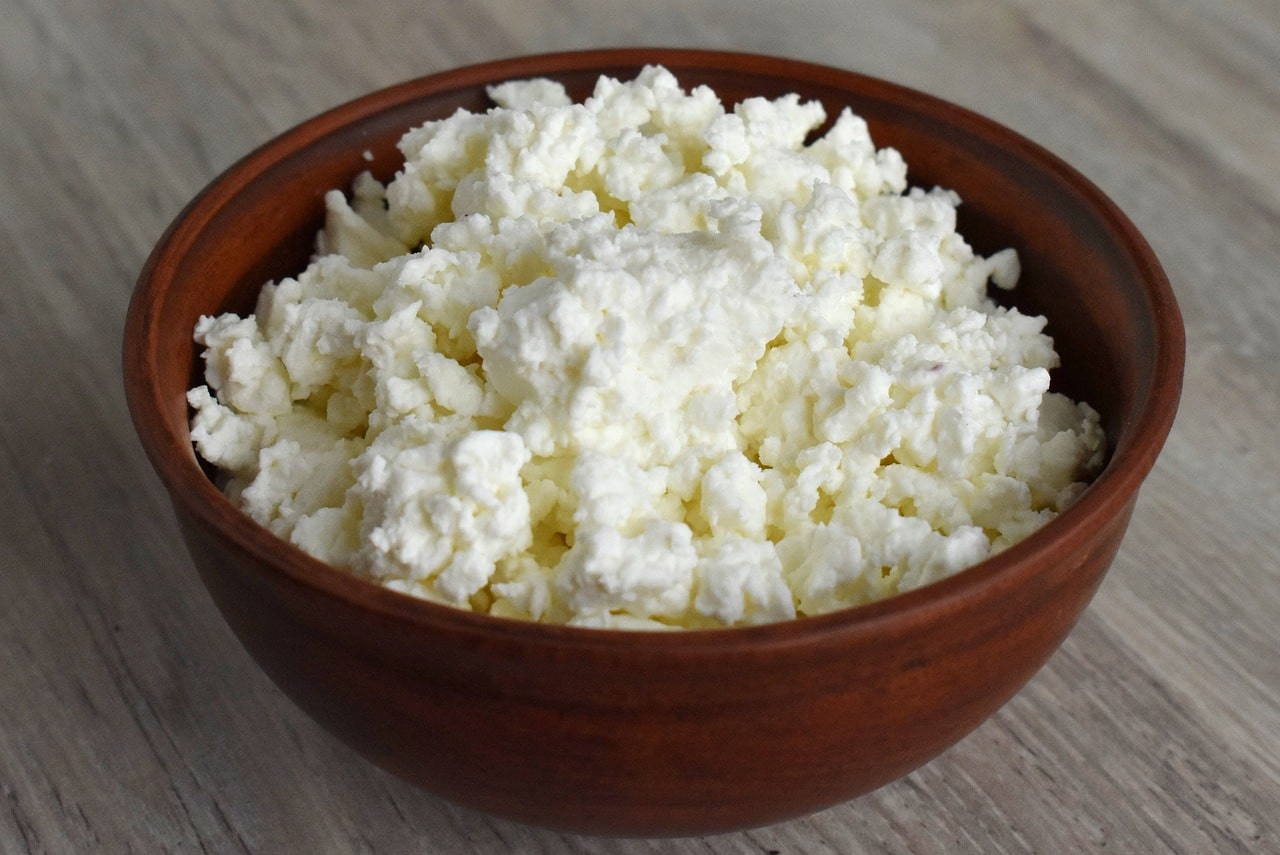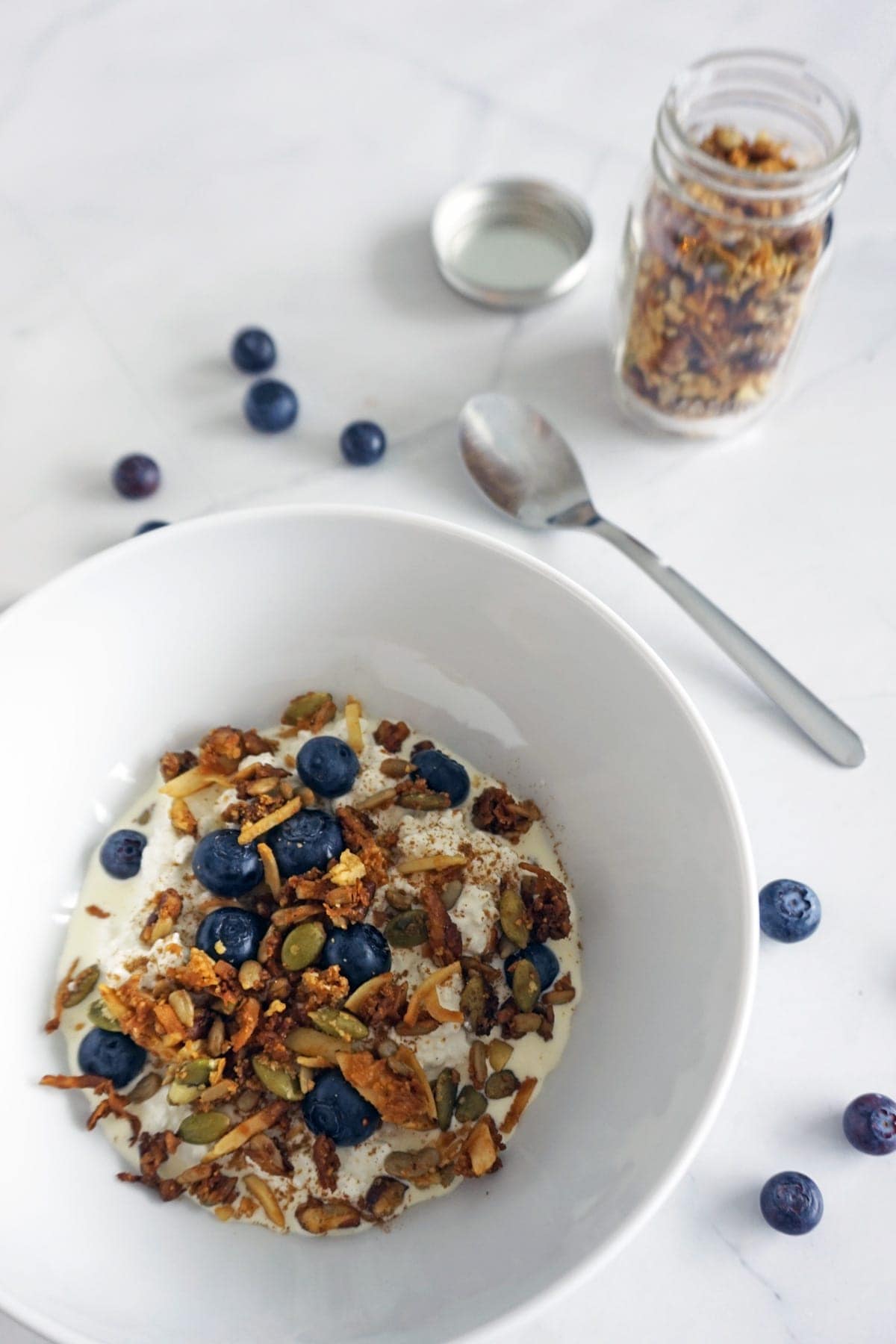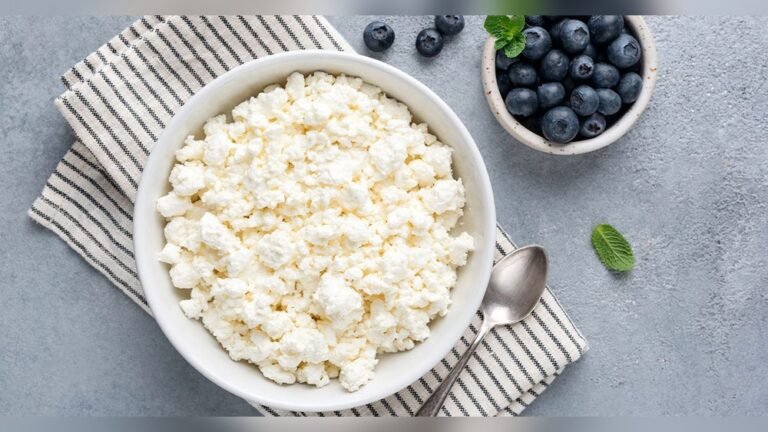If you’re following a low carb diet, you might wonder if cottage cheese can fit into your meal plan without ruining your progress. The good news?
Cottage cheese can be a delicious, protein-packed addition—if you choose the right kind and watch your portions. Imagine a creamy, satisfying snack or meal base that keeps you full longer and helps you stay on track with your carb goals.
Want to learn how to pick the best cottage cheese for your low carb lifestyle and use it in tasty, easy recipes? Keep reading, because this guide has everything you need to enjoy cottage cheese without guilt or guesswork.

Credit: porkrinds.com
Cottage Cheese And Low-carb Diets
Cottage cheese fits well into many low-carb diet plans. This dairy product offers a good balance of protein and carbs. It can be a satisfying choice for those reducing carb intake. Choosing the right type helps keep carbs low and nutrients high.
Carb Content In Cottage Cheese
Cottage cheese contains a moderate amount of carbohydrates. One half-cup of plain cottage cheese has about 3 to 6 grams of carbs. The exact amount depends on the brand and fat content. Full-fat versions often have slightly fewer carbs. Avoid flavored or fruit-added types to keep carbs low.
Benefits For Low-carb Eating
Cottage cheese is rich in protein, which supports muscle health. It helps keep you full longer, reducing snacking urges. This dairy product also contains calcium and B vitamins. Its creamy texture makes it versatile for meals and snacks. Combining it with low-carb veggies creates a balanced, tasty dish.

Credit: modernyum.com
Choosing The Right Cottage Cheese
Choosing the right cottage cheese is important for a low carb diet. Not all cottage cheese products have the same nutritional value. Some contain added sugars or fillers that increase the carb count. Selecting the right type helps keep your carb intake low while providing good protein and fat.
Plain And Full-fat Options
Plain cottage cheese is the best choice for a low carb diet. Avoid flavored varieties with fruit or sweeteners. Full-fat options provide more healthy fats and keep you feeling fuller longer. They also have fewer carbs compared to low-fat or fat-free versions. Choose full-fat plain cottage cheese to balance your macros well.
Reading Nutrition Labels
Always check the nutrition label before buying. Look for cottage cheese with the lowest carbs per serving. Pay attention to protein, fat, and calorie counts too. Serving sizes may vary, so compare products based on the amount you will eat. This helps keep your diet on track.
Avoiding Added Sugars
Many cottage cheese brands add sugar or fruit to improve taste. These added sugars increase carbs and reduce diet effectiveness. Avoid products that list sugar, corn syrup, or other sweeteners in the ingredients. Stick to plain versions to avoid hidden carbs and stay within your daily limits.
Portion Control Tips
Controlling portions of cottage cheese is key for a low carb diet. Eating the right amount helps manage carb intake and supports weight goals. It also ensures you get enough protein without overeating calories. Simple portion control makes cottage cheese a smart, easy snack or meal addition.
Serving Size Guidelines
A typical serving of cottage cheese is about half a cup. This portion usually contains 3 to 5 grams of carbs. Measure servings with a cup or kitchen scale to avoid guessing. Stick to plain, full-fat cottage cheese for the best low carb option. Avoid flavored types as they often add sugars and extra carbs.
Balancing Macros With Cottage Cheese
Cottage cheese provides protein and some carbs but little fat. Add healthy fats like avocado or olive oil to balance your meal. This helps keep your fat intake high enough for low carb or keto diets. Pairing cottage cheese with low carb veggies adds fiber and nutrients. Balancing macros this way keeps your meals satisfying and nutritious.
Low-carb Snack Ideas With Cottage Cheese
Cottage cheese is a versatile low-carb snack choice. It offers protein and a creamy texture that pairs well with many flavors. Simple additions can transform it into a tasty, satisfying snack. These ideas keep carbs low and taste high.
Herbs And Veggie Mix-ins
Fresh herbs like dill, chives, and parsley add bright flavors. Mix in chopped cucumber, bell peppers, or celery for crunch. This combo adds fiber without many carbs. It makes cottage cheese a refreshing, light snack.
Spicy And Savory Combos
Add a pinch of chili flakes or a dash of hot sauce for heat. Mix in chopped olives or sun-dried tomatoes for a savory twist. A sprinkle of black pepper or smoked paprika boosts flavor. These options keep snacks exciting and low in carbs.
Sweet But Low-carb Toppings
Try cinnamon or nutmeg for warm spice without sugar. Add a few fresh berries like raspberries or strawberries in small amounts. Unsweetened shredded coconut or a drop of vanilla extract works well too. These toppings satisfy sweet cravings while staying keto-friendly.
Cottage Cheese In Keto Diets
Cottage cheese can be a valuable food for those following a keto diet. It offers protein and fat with a relatively low amount of carbohydrates. This makes it a suitable option for keto meal plans. Choosing the right type and portion size helps keep daily carb intake low. Cottage cheese also adds variety and texture to meals.
Keto Compatibility
Cottage cheese is mostly protein and fat, with some carbs. Plain, full-fat cottage cheese usually contains about 3-5 grams of carbs per half-cup serving. This fits well within keto carb limits if portions are controlled. Avoid flavored or fruit-added cottage cheese, as these contain extra sugars. The natural carbs come from milk lactose, which is lower than in many dairy products.
Fitting Cottage Cheese Into Keto Macros
Track your daily macros carefully to include cottage cheese. Use it as a protein source while balancing fat intake from other foods. A half-cup of cottage cheese pairs well with nuts, seeds, or avocado to increase healthy fats. Add herbs or low-carb vegetables for flavor and nutrients. Portion control is key to avoid going over your carb limit.

Credit: kirbiecravings.com
Low-carb Cottage Cheese Brands
Cottage cheese is a popular choice for low-carb diets. Many brands offer plain, full-fat options that fit well into low-carb eating plans. Choosing the right brand helps keep carb intake low and protein intake high. Reading nutrition labels is essential to avoid added sugars and unnecessary carbs.
Some cottage cheese brands stand out for their low carbohydrate content. Others include added sugars or fruit, which increases carbs significantly. Selecting the right brand supports your diet goals and keeps meals simple and healthy.
Top Picks For Lowest Carb
Look for plain, full-fat cottage cheese with less than 4 grams of carbs per half-cup. Brands like Breakstone’s, Daisy, and Friendship often have low-carb options. These brands use minimal ingredients and avoid added sugars. They provide a creamy texture and rich protein without extra carbs.
Organic and local dairy brands can also offer low-carb cottage cheese. Always check the label for total carbs and ingredients. The fewer additives, the better for a low-carb diet.
Brands To Avoid Due To Added Sugars
Flavored or fruit-added cottage cheeses usually have high sugar content. Brands like Good Culture Fruit & Cream or any sweetened varieties add extra carbs. These do not fit well into a low-carb eating plan.
Some budget brands add fillers or sweeteners to improve taste. These increase carb counts and reduce the diet’s effectiveness. Avoid cottage cheese products with ingredients like cane sugar, corn syrup, or fruit preserves.
Stick to plain, unsweetened varieties to maintain low carb intake and better control over your diet.
Health Benefits Of Cottage Cheese
Cottage cheese stands out as a nutritious choice for those following a low carb diet. It offers many health benefits that support overall well-being. This dairy product is rich in essential nutrients and fits well into balanced meal plans. Its unique composition helps fuel the body while keeping carbohydrate intake low.
Eating cottage cheese regularly can support muscle health, bone strength, and weight management. It contains important vitamins and minerals without adding too many calories or carbs. This makes cottage cheese a smart addition to many diets, especially for people aiming to improve their nutrition.
Protein And Nutrient Profile
Cottage cheese is an excellent source of high-quality protein. Each serving provides a good amount of casein protein, which digests slowly. This helps keep you full longer and supports muscle repair. It also contains calcium, phosphorus, selenium, and B vitamins.
These nutrients play a key role in bone health and energy production. The low carbohydrate content makes it suitable for low carb diets. Cottage cheese provides important building blocks for the body without excess sugars.
Role In Weight Management
Protein-rich foods like cottage cheese can help control hunger and reduce calorie intake. Eating cottage cheese can increase feelings of fullness, making it easier to eat less overall. Its low carb content helps maintain steady blood sugar levels.
These effects support healthy weight loss and fat reduction. Cottage cheese can be a satisfying snack or part of a meal that helps manage body weight. It fits well in plans focused on fat loss and lean muscle preservation.
Common Mistakes To Avoid
Choosing cottage cheese for a low carb diet can be smart and tasty. Still, some mistakes can slow your progress. Knowing common errors helps you make better choices. Avoid these pitfalls to enjoy cottage cheese without extra carbs or calories.
Overlooking Hidden Sugars
Many cottage cheese brands add sugars or fruit. These add unwanted carbs and calories. Always read labels carefully before buying. Plain, unsweetened cottage cheese is the best choice. Don’t trust the “low fat” tag alone—it can hide sugars. Watch out for terms like syrup, dextrose, or cane sugar in ingredients.
Ignoring Portion Sizes
Cottage cheese is healthy but can add up quickly. Eating large portions increases carb and calorie intake. Measure servings with a cup or scale. Stick to recommended portions to stay within your carb limit. Small amounts combined with veggies or nuts make a balanced snack. Portion control keeps your diet on track and prevents overeating.
Conclusion
Cottage cheese fits well in a low-carb diet plan. Choose plain, full-fat versions to keep carbs low. Watch portion sizes to control your daily carb intake. Pair it with vegetables or herbs for a tasty meal. It offers good protein and supports muscle health.
Avoid flavored or sweetened types to reduce hidden sugars. This simple dairy choice helps maintain your low-carb goals. Enjoy cottage cheese as part of balanced, healthy eating every day.


